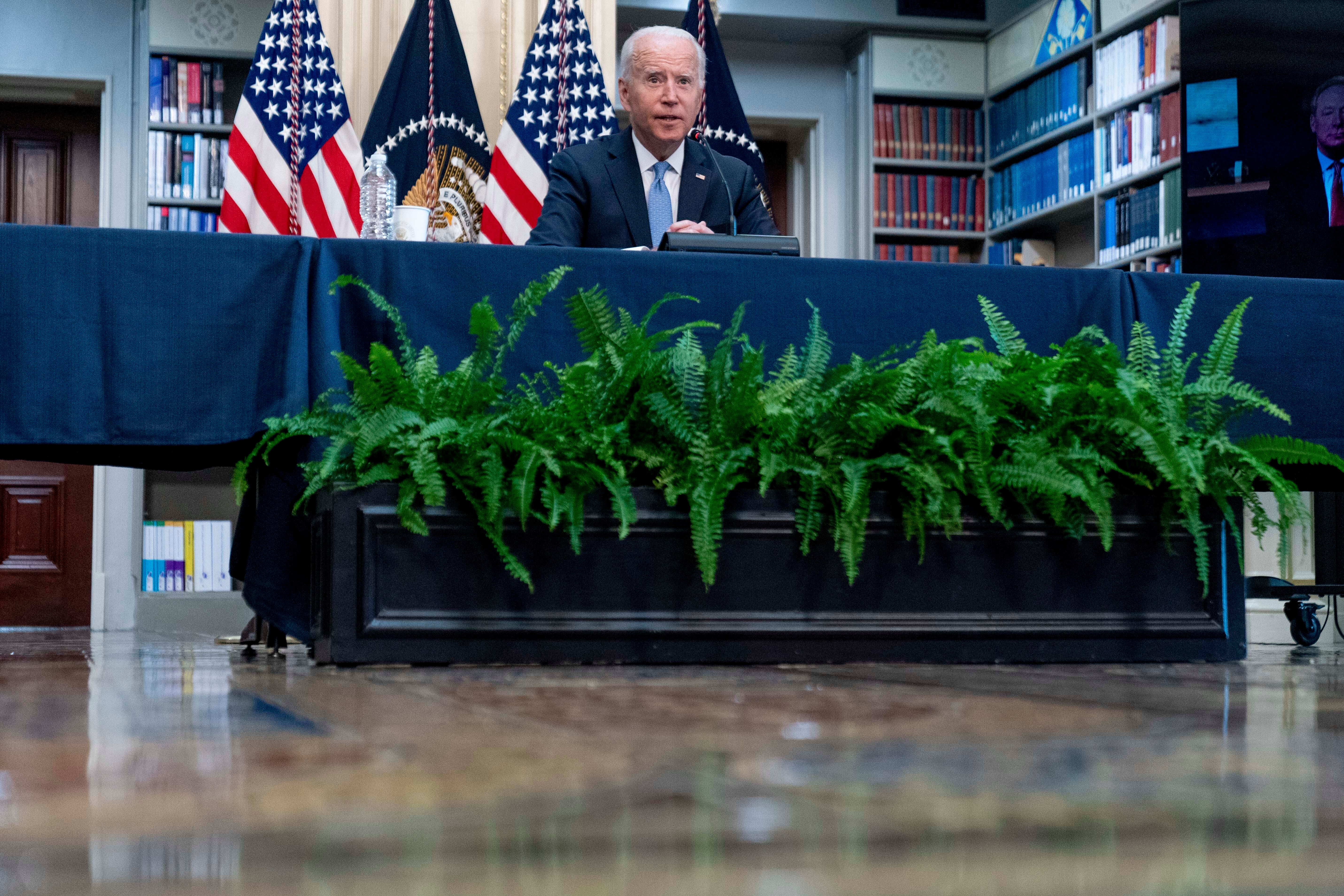Biden to announce Indo-Pacific alliance with UK, Australia
President Joe Biden is set to announce that the United States is joining a new Indo-Pacific security alliance with Britain and Australia that will allow for greater sharing of defense capabilities

Your support helps us to tell the story
From reproductive rights to climate change to Big Tech, The Independent is on the ground when the story is developing. Whether it's investigating the financials of Elon Musk's pro-Trump PAC or producing our latest documentary, 'The A Word', which shines a light on the American women fighting for reproductive rights, we know how important it is to parse out the facts from the messaging.
At such a critical moment in US history, we need reporters on the ground. Your donation allows us to keep sending journalists to speak to both sides of the story.
The Independent is trusted by Americans across the entire political spectrum. And unlike many other quality news outlets, we choose not to lock Americans out of our reporting and analysis with paywalls. We believe quality journalism should be available to everyone, paid for by those who can afford it.
Your support makes all the difference.President Joe Biden is set to announce Wednesday that the United States is joining a new Indo-Pacific security alliance with Britain and Australia that will allow for greater sharing of defense capabilities, a move that could deepen a growing chasm in U.S.-China relations.
Biden, British Prime Minister Boris Johnson and Australian Prime Minister Scott Morrison are expected to deliver remarks during a joint virtual event where they'll detail the new alliance that will be called AUKUS.
The new security alliance is likely to be seen as a provocative move by China, which has repeatedly lashed out at Biden as he’s sought to refocus U.S. foreign policy on the Pacific in the early going of his presidency.
Ahead of the announcement, a senior administration official sought to play down the idea that the alliance was meant to serve as a deterrent against China in the region. The official, who spoke on the condition of anonymity to preview the announcement, said the alliance’s creation was not aimed at any one country, and is about a larger effort to sustain engagement and deterrence in the Indo-Pacific by the three nations.
The three countries have agreed to share information in areas including artificial intelligence, cyber and underwater defense capabilities, the official said.
The three countries are also expected to announce plans to support Australia acquiring nuclear-powered submarines, the official said. To date, the only country that the United States has shared nuclear propulsion technology with is Britain. The administration official said Australia is not seeking to develop a nuclear weapons program and information sharing would be limited to helping the nation develop a submarine fleet.
The announcement of the new security alliance comes as the U.S.-China relationship has deteriorated. Beijing has taken exception with Biden administration officials repeatedly calling out China over human rights abuses in Xianjing province, the crackdown on democracy activists in Hong Kong, and cybersecurity breaches originating from China, as well as Beijing’s handling of the coronavirus pandemic and what the White House has labeled as “coercive and unfair” trade practices.
Even as White House officials have repeatedly spoken out about China, administration officials say they want to work with Beijing on areas of common interest, including curbing the pandemic and climate change.
Biden spoke by phone with China’s President Xi Jinping last week amid growing frustration on the American side that high-level engagement between the two leaders’ top advisers has been largely unfruitful.
After the 90-minute phone call, official Xinhua News Agency reported that Xi expressed concerns that U.S. government policy toward China has caused “serious difficulties” in relations.
Asked on Tuesday about media reports that Xi had declined to commit to meet with him in person, the U.S. president said it was “untrue.”
The U.S. and Australia, along with India and Japan, are members of a strategic dialogue known as “the Quad.” Biden is set to host fellow Quad leaders at the White House next week.
Biden has sought to rally allies to speak with a more unified voice on China and has tried to send the message that he would take a radically different approach to China than former President Donald Trump, who placed trade and economic issues above all else in the U.S.-China relationship.
In June, at Biden's urging, Group of Seven nations called on China to respect human rights in Hong Kong and Xinjiang province and to permit a full probe into the origins of COVID-19. While the allies broadly agreed to work toward competing against China, there was less unity on how adversarial a public position the group should take.
The president has also sought to make clear to allies, particularly those in the Quad, that his administration would keep focused on China.
With Japanese Prime Minister Yoshihide Suga, Biden has underscored the U.S. commitment to protecting the Senkaku Islands, a group of uninhabited islets administered by Tokyo but claimed by Beijing. In talks with India’s Prime Minister Narendra Modi, Biden has emphasized the need for “close cooperation to promote a free and open Indo-Pacific.” And with Australia’s Morrison, the president has stressed that the two nations’ alliance was essential to stability in the region.